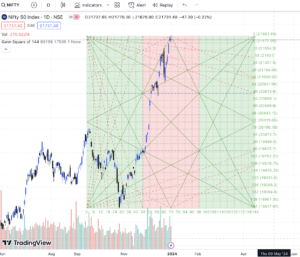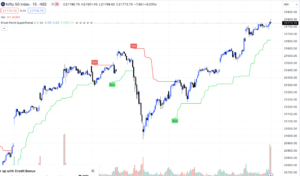How to Become Successful Investor : Top 10 Qualities of Great Investors

In the pursuit of successful investing, I was reminded of a valuable lesson from a quote:
Life is not about fast pace but slow-steady growth. Remain steady, donot hurry and trust the process
-Unknown
This philosophy extends beyond the education, resonating in the world of investing. Much like school, there’s no comfort zone in investing. However, with a sound process and dedicated practice, success unfolds over time.
Investing, I’ve realized, shares common ground with schooling. The convergence of a superior process and greatness is not only prevalent in schooling but also in the realm of investments. For serious investors, trusting the process that yields winning results is paramount.
My exploration led me to a well-established process articulated by Michael Mauboussin in his work, “Reflections on the Ten Attributes of Great Investors.” As the Head of Consilient Research at Counterpoint Global, Morgan Stanley Investment Management, Mauboussin’s process, outlined in his note, serves as a guiding light for investors seeking a winning investment strategy.
Let’s delve into my insights on the ten attributes Mauboussin has elucidated:
1. Understand Accounting and Work with Numbers: Successful investors possess a comfort with numbers, a key attribute. While one need not be an accountant, grasping accounting principles and analyzing financial statements is crucial. Numbers reveal a business’s past, present, and future.
2. Understand Value: Estimating the intrinsic value of a business is fundamental to successful investing. The present value of future free cash flow determines a financial asset’s value. Despite the challenges, focusing on understanding the magnitude and sustainability of free cash flow enhances the valuation process.
3. Properly Assess How a Business Makes Money: Successful investors comprehend the workings of businesses they invest in. They can articulate how a business generates income, factors driving profitability, and whether it possesses a sustainable competitive advantage.
4. Compare Expectations Versus Fundamentals: Great investors excel in comparing a company’s fundamentals with the expectations implied by its stock price. Performing a reverse discounted cash flow analysis aids in understanding the intrinsic value and growth expectations priced into the stock.
5. Think Probabilistically: Successful investors embrace probabilistic thinking, constantly assessing the likelihood of various outcomes. Recognizing that the frequency of correctness matters less than the magnitude of success when correct is a crucial aspect of this attribute.
6. When Facts Change, Change Your Mind: The ability to adapt and change one’s mind when facts evolve is crucial. Long-term investing doesn’t mean holding onto ideas indefinitely; instead, continuous re-evaluation and adaptation are necessary.
7. Minimize Mistakes Due to Behavioral Biases: Investing is predominantly about behavior. Successful investors minimize cognitive biases, acknowledging that humans are naturally inclined to behave poorly, especially in uncertain situations.
8. Know the Difference Between Information and Influence: Investing is a social exercise, where prices can transition from being informative to influential. Great investors resist being swayed by influence, maintaining independence in their decision-making.
9. Size Your Positions Appropriately: Success in investing involves finding an edge and optimizing it through proper position sizing. Allocating capital based on the certainty of ideas is crucial for maximizing portfolio impact.
10. Read and Keep an Open Mind: Reading fosters curiosity, concentration, perseverance, and self-criticism, attributes essential for success. Embracing the ability to change one’s mind and challenge cherished ideas is a hallmark of great investors.
In conclusion, embracing these attributes, just like schooling, allows investors to navigate the complex world of financial markets with resilience and a sense of purpose.





